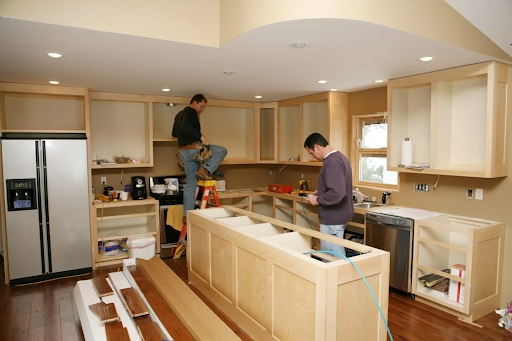Transforming Your Space: The Ultimate Guide to Kitchen Remodeling
Kitchen remodeling is one of the most effective ways to enhance the functionality and aesthetics of your home. A well-executed remodel can not only improve your cooking experience but also increase your property value. This guide will walk you through the essential steps and considerations for a successful kitchen transformation.
Understanding the Purpose of Your Remodel
Before diving into the details, it’s vital to define the purpose of your kitchen remodeling project. Are you looking to improve functionality, update the design, or increase storage? Clarifying your goals will help guide your decisions throughout the remodeling process. Consider whether you want an open-concept layout, more counter space, or updated appliances. Understanding your needs will shape your design choices and budget.
Setting a Realistic Budget
Establishing a budget is a crucial step in kitchen remodeling. Determine how much you can realistically spend, factoring in costs for materials, labor, permits, and unexpected expenses. According to experts, a typical kitchen remodel can range from $15,000 to $50,000, depending on the scale of the project. Consider prioritizing your spending on key areas, such as cabinetry and countertops, which often have the most significant impact on the overall look and functionality of your kitchen.
Planning the Layout
The layout of your kitchen plays a pivotal role in its usability and flow. Consider the “work triangle” concept, which emphasizes the efficient arrangement of the stove, refrigerator, and sink. A well-planned layout will minimize movement and make cooking more enjoyable. When remodeling, think about whether you want to maintain the existing layout or completely redesign the space. If you’re considering structural changes, consult with a professional to ensure the changes comply with building codes and are feasible within your budget.
Selecting Materials and Finishes
Choosing the right materials and finishes is essential for both aesthetics and durability. When selecting cabinetry, countertops, flooring, and backsplashes, consider factors such as style, maintenance, and cost. Popular materials for countertops include granite, quartz, and butcher block, each offering distinct benefits. For cabinetry, solid wood is often favored for its longevity and appearance, while laminate provides a budget-friendly alternative.
Don’t forget about flooring, which should be both stylish and practical. Options like ceramic tiles, hardwood, and luxury vinyl are popular choices, each with its unique characteristics. When remodeling, ensure that your selected materials complement each other and align with your overall design vision.
Choosing Appliances Wisely
Modern appliances can dramatically enhance the efficiency and convenience of your kitchen. During your remodeling process, consider investing in energy-efficient appliances that align with your cooking habits. Features like smart technology and integrated designs can add both functionality and style. Be sure to measure your available space accurately to ensure that new appliances fit seamlessly into your kitchen layout.
Focusing on Lighting
Lighting is often an overlooked aspect of kitchen remodeling, yet it significantly impacts the ambiance and functionality of the space. A well-lit kitchen will enhance your cooking experience and make the area more inviting. Consider incorporating a mix of task lighting, ambient lighting, and accent lighting to create a well-balanced illumination scheme.
Task lighting, such as under-cabinet lights, provides focused light for food preparation, while ambient lighting can set the mood for dining. Pendant lights or chandeliers can add a stylish touch to your kitchen remodel, serving as both functional and decorative elements.
Hiring the Right Professionals
While some homeowners may choose to tackle kitchen remodeling as a DIY project, hiring professionals can help ensure a smooth and successful transformation. Consider working with an architect or designer to create a detailed plan that reflects your vision. Skilled contractors can manage the construction process, ensuring that work is completed on time and within budget.
When selecting professionals, check references, read reviews, and verify their credentials. A well-coordinated team will streamline the remodeling process and help you avoid costly mistakes.
Planning for the Future
As you embark on your kitchen remodeling journey, think about the long-term implications of your design choices. Consider how your kitchen will accommodate future needs, such as family growth or lifestyle changes. Flexibility in design can enhance the longevity of your remodel, allowing your kitchen to adapt as your life evolves.
Conclusion
Kitchen remodeling is an exciting opportunity to transform your space and create a functional, beautiful environment. By understanding your goals, setting a budget, planning your layout, selecting materials wisely, and hiring the right professionals, you can achieve the kitchen of your dreams. With careful planning and consideration, your kitchen remodel can significantly enhance your home’s value and your quality of life.




